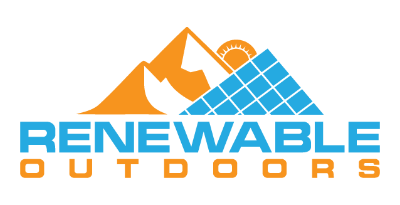Are you looking to embark on an unforgettable overlanding journey? This comprehensive guide will cover everything you need to know about getting started, the essential products you'll need, and expert tips to make your adventure a success. Let's dive right in!
What is Overlanding?
Overlanding is a form of self-reliant, vehicle-based travel focused on the journey rather than the destination. It combines off-road driving, camping, and exploration, taking you through remote landscapes and allowing you to experience the great outdoors in a unique way. Overlanding vehicles are typically equipped with everything needed for off-grid living, including sleeping quarters, cooking equipment, and power sources.
Choosing the Right Vehicle
Your vehicle is the foundation of your overlanding experience. It's essential to choose a reliable, capable, and comfortable vehicle that suits your needs. Consider factors such as:
- 4x4 capabilities and off-road performance
- Size, storage, and cargo capacity
- Fuel efficiency and range
- Availability of aftermarket parts and accessories
Popular overlanding vehicle choices include pickup trucks, SUVs, and adventure vans.
Essential Overlanding Products
Equipping your vehicle with the right products is crucial for a safe and enjoyable overlanding experience. Here's a list of essential items to get started:
1. Roof-top Tent or Camping Setup
A roof-top tent or a ground tent with a comfortable sleeping pad and sleeping bag will provide shelter and comfort during your journey. Choose a durable, weather-resistant option that is easy to set up and take down.
2. Portable Power Station and Solar Panels
A portable power station is a must-have for keeping your devices charged and powering essential equipment. Pair it with solar panels to generate clean, renewable energy throughout your trip.
3. Navigation and Communication Tools
Invest in a reliable GPS navigation system and offline maps to stay on course. Additionally, consider carrying a satellite communicator or a two-way radio to stay connected in remote areas without cell service.
4. Recovery and Emergency Gear
Equip your vehicle with recovery gear such as traction boards, a winch, and recovery straps. Also, pack a well-stocked first aid kit, fire extinguisher, and emergency tools like a multi-tool and flashlight.
5. Cooking and Food Storage
A portable camp stove, cooking utensils, and food storage containers will make mealtime easy and enjoyable. Consider investing in a portable fridge/freezer to keep perishables fresh and extend the duration of your journey.
6. Water Storage and Purification
Access to clean drinking water is essential. Carry a large water storage container and a water purification system or portable water filter to ensure a safe supply of drinking water.
7. Vehicle Maintenance and Repair Tools
Basic tools, a tire repair kit, and a portable air compressor will help you handle minor repairs and maintenance tasks on the road. Familiarize yourself with your vehicle's systems and carry a repair manual for guidance.
Planning Your Overlanding Journey
Proper planning is key to a successful overlanding adventure. Here are some tips to help you get started:
- Research your route: Study maps, guidebooks, and online resources to identify points of interest, potential hazards, and off-road trails. Be aware of local laws, regulations, and permit requirements.
- Set realistic goals: Determine the duration and pace of your trip, taking into account factors such as travel time, rest days, and the time needed for exploration and activities.
- Prepare for the unexpected: Plan for contingencies such as bad weather, vehicle breakdowns, or medical emergencies. Carry extra food, water, and fuel, and have an exit plan in case of unforeseen circumstances.
- Check your gear: Test and familiarize yourself with all your equipment before departing. Ensure that your vehicle is well-maintained and serviced, and double-check that all essential items are packed.
- Leave no trace: Practice responsible overlanding by minimizing your impact on the environment. Pack out all trash, stick to established trails, and respect wildlife and local communities.
Join the Overlanding Community
Connecting with fellow overlanders can be an invaluable source of support, knowledge, and camaraderie. Participate in online forums, social media groups, or attend local meetups and events to share experiences, tips, and advice with like-minded adventurers.
With the right preparation, products, and mindset, you're ready to embark on an incredible overlanding journey. Embrace the spirit of adventure and enjoy the freedom of off-grid living as you explore the great outdoors. Safe travels!




